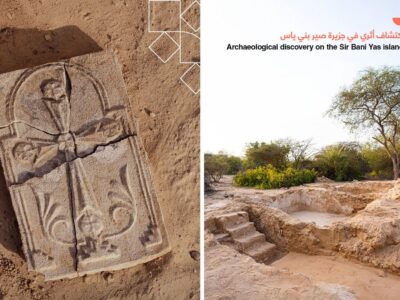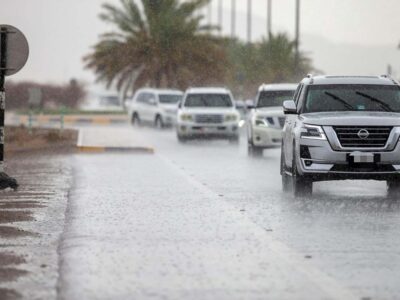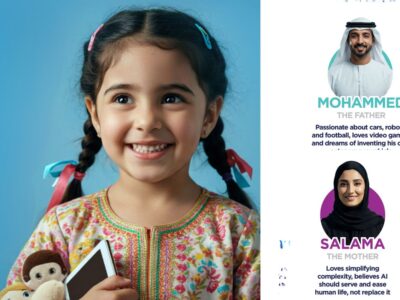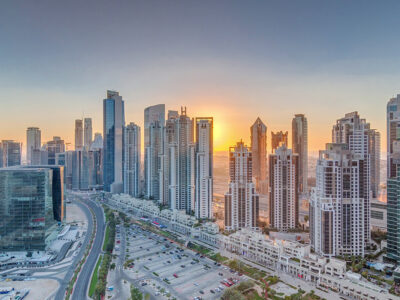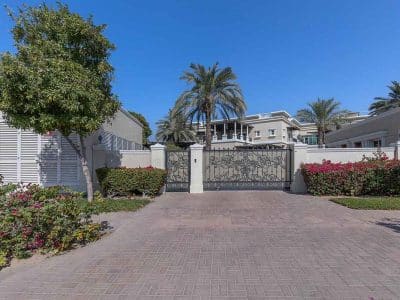Ramadan is a significant month in the Islamic calendar, observed by millions of Muslims around the world with fasting, prayer, and charitable acts.
In the UAE, Ramadan is a time of reflection, community, and spiritual renewal.
During this holy month, Muslims in the UAE come together to participate in various traditions and customs, ranging from breaking fast with family and friends to performing nightly prayers at mosques.
With its vibrant cultural heritage and diverse population, the UAE offers a unique Ramadan experience, blending modernity with traditional practices.
That being said, here is all you need to know about the significance of Ramadan in the UAE, work timings, Iftar timings and Eid holiday dates.
Here is a comprehensive guide to Ramadan in the UAE
- UAE Ramadan countdown begins, 30 days to go
- Ramadan in UAE: Rules for non-Muslim residents, Eid holidays
- Dubai Expo City to host Ramadan 2023 festival
- UAE Ramadan: Reduced work hours expected
- UAE Ramadan Iftar timings revealed
- Ramadan the ‘kindest moment’ on Facebook and Instagram
- UAE Ramadan: Travel rates surge during holy month
- UAE Ramadan: Increase in usage of food, grocery delivery apps
UAE Ramadan countdown begins, 30 days to go
The beginning of Sha’ban counts 30 days to the start of the holy month

Tuesday, February 21 marks the beginning of Sha’ban, according to astronomical calculations. The beginning of Sha’ban counts 30 days to the start of Ramadan.
Sighting of the crescent moon is the way Islamic calendar months are calculated, the moon sighting to announce the start of Sha’ban is yet to be announced.
Holy month is expected to begin on March 22, according to local media reports, and Eid Al Fitr and the first of Shawwal will most likely fall on Friday, April 21.
The exact dates of Ramadan and Eid Al Fitr will be confirmed by the moon-sighting committee closer to the time. Last year, the Holy month began on April 1.
During the holy month, people would be fasting up to 14 hours per day. Each day, the duration of the fast increases by minutes.
Ramadan in UAE: Rules for non-Muslim residents, Eid holidays
As Ramadan is set to begin in March, non-Muslim residents and tourists must follow these rules and etiquettes in the UAE

Ramadan is the ninth month of the Islamic calendar, and is an revered time for all in the UAE.
Known as the Holy Month of the year, the Islamic community comes together fast and pray. Muslims abstain from eating and drinking from dawn to dusk, as fasting is known as the one of the five pillars of Islam.
Ramadan begins at the first sighting of the new crescent Moon, lasting for 29 to 30 days, depending on the next moon sighting.
As the Holy month is set to begin in March, non-Muslim residents and tourists must follow these rules and etiquettes in the UAE.
Rules for non-muslim residents, tourists
It is not mandatory for non-muslims to fast.
However, according to the official UAE government portal, they are prohibited from eating, drinking and smoking in public during the fasting hours. This also includes chewing gum.
Additionally, non-Muslim residents and tourists must not:
- Engage in any aggressive behaviour
- Dance or play music in public although you may listen to music quietly with headphones
- Wear inappropriate clothing in public
- Swear as blasphemy is considered extra offensive during Ramadan
- Refuse a gift, or an invitation to join someone at Iftar
While many fast during daylight hours in Ramadan, a few malls make the exception to keep their dining options open for non-Muslims, children and the elderly.
For those fasting, there are two main meals in Ramadan — Suhoor and Iftar. Suhoor is consumed early in the morning before dawn, just before fasting hours start, whereas Iftar is the meal to break the fast.
Eid holidays in the UAE
As per astronomical charts, Eid Al Fitr in the UAE will fall on Thursday, April 20, and will last until Sunday, April 23.
As per astronomical charts, Eid Al Fitr in the UAE will fall on Thursday, April 20, until Sunday, April 23.
The exact dates of the holy month and Eid Al Fitr will be confirmed by the moon-sighting committee closer to the time. However, the UAE Cabinet confirmed holiday dates last year in November, for public and private sectors in the UAE.
According to a social media post shared by the UAE Government, the following is the full list of holidays for this year:
- Eid Al Fitr: Ramadan 29 to Shawwal 3
- Arafah Day: Dhul Hijjah 9
- Eid Al Adha: Dhul Hijjah 10-12
- Hijri New Year: July 21
- Prophet Muhammad’s (PBUH) birthday: September 29
- National Day: December 2-3
Going forward, the UAE will see four main holiday periods during the year. This includes Eid Al Fitr, Arafah Day and Eid Al Adha, Hijiri New Year, and National Day, which includes Commemoration Day.
Dubai Expo City to host Ramadan 2023 festival
Expo City Dubai will host a “Hai Ramadan” festival from March 3 to April 25

Expo City Dubai will host a “Hai Ramadan” festival from March 3 to April 25.
The iconic Dubai landmark will offer cultural events and engaging activities to celebrate the holy month of Ramadan in the city.
Amna Abulhoul, Executive Creative Director – Expo City Dubai, said: “Just as Expo 2020 Dubai brought the world together once before, Expo City Dubai’s Hai Ramadan will bring together different communities from all over during the holy month.
Ramadan Hai at Expo City Dubai
“We are excited that our visitors will be able to rejoice in some of the world’s most famous and well-known Ramadan traditions in a single destination.”
This year, Ramadan is expected to begin on March 23, according to local media reports, and Eid Al Fitr and the first of Shawwal will most likely fall on Friday, April 21.
Ramadan Hai is named after hai, an Arabic word with a dual meaning of “neighbourhood” and “welcome” and will run for more than 50 days, beginning on March 3.
The launch will occur the weekend prior to the UAE’s traditional celebration of Haq Al Laila, in preparation for the start of the holy month two weeks later.
Hai Ramadan will take visitors on a cultural journey where they can share unique experiences from across the Islamic world.
Worshippers will be able to access a dedicated mosque on site for all prayers, including Isha and the later Taraweeh and Tahajjud prayers.
After the Taraweeh prayer, storytellers will evoke the ancient Arab art of Hakawati – narrating folktales and stories of adventure, culture, religion and morality.
Additionally, Expo City’s very own Misaharati – classic Ramadan figures who would wake up their communities with drumming and singing, traditionally before dawn, to drink water and partake in Suhoor – will celebrate the experience of this age-old tradition throughout the day.
Expo City will also have a night market throughout the holy month.
Entry to Hai Ramadan will be free and the site will be accessible from 4pm to 10pm in the run-up to Ramadan, and from 5pm to 2am during Ramadan.
UAE Ramadan: Reduced work hours expected
According to the UAE Labour Law, work timings are to be reduced during the holy month

This year, Ramadan is expected to begin on March 23, according to local media reports, and Eid Al Fitr and the first of Shawwal will most likely fall on Friday, April 21. During the holy month, workers in the UAE can expect shorter working hours.
According to the UAE labour law “Private sector workers are required to work 8 hours per day or 48 hours per week. During the holy month, working hours are reduced by two.”
Commute time from place of residence to the workplace is not included in the working hours, except for certain categories of workers as specified by the ‘Executive Regulations of the Labour Law’.
UAE Ramadan Iftar timings revealed
At the time of Maghrib prayer, those celebrating Ramadan break their fast
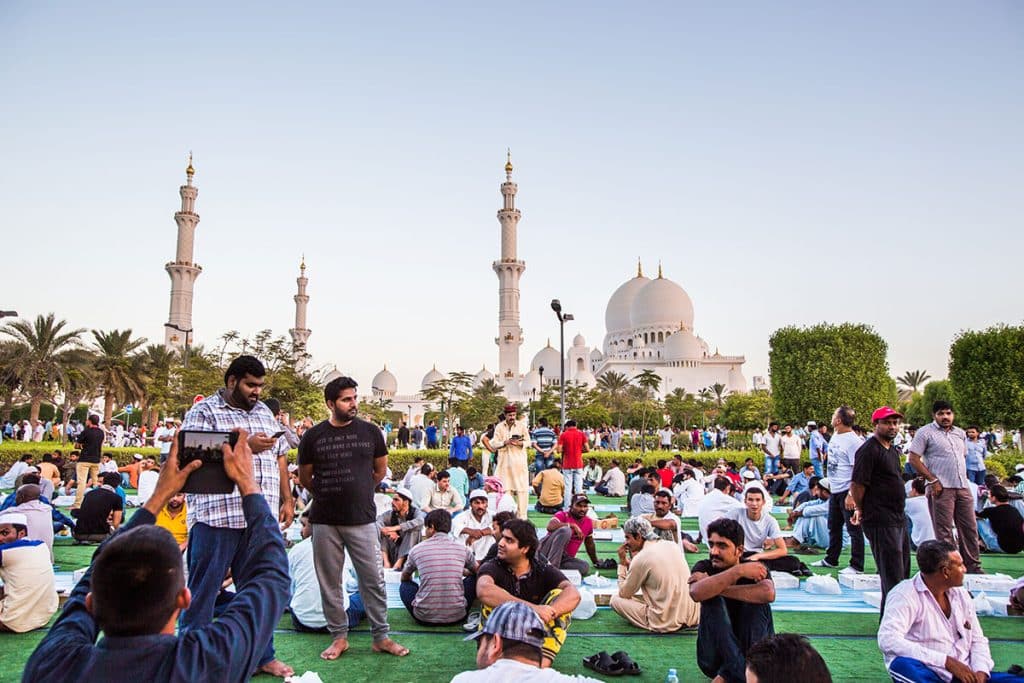
This year, Ramadan is expected to begin on March 23, according to local media reports, and Eid Al Fitr and the first of Shawwal will most likely fall on Friday, April 21.
During the holy month, people would be fasting up to 14 hours per day. Each day, the duration of the fast increases by minutes.
Iftar, meaning breakfast, is the first evening meal with which individuals end their daily fast.
Timings to break fast (Iftar) during the holy month of Ramadan
| DATE | TIMING |
|---|---|
| March 23 | 18:31 (+04) |
| March 24 | 18:32 (+04) |
| March 25 | 18:32 (+04) |
| March 26 | 18:33 (+04) |
| March 27 | 18:33 (+04) |
| March 28 | 18:33 (+04) |
| March 29 | 18:34 (+04) |
| March 30 | 18:34 (+04) |
| March 31 | 18:35 (+04) |
| April 01 | 18:35 (+04) |
| April 02 | 18:36 (+04) |
| April 03 | 18:36 (+04) |
| April 04 | 18:37 (+04) |
| April 05 | 18:37 (+04) |
| April 06 | 18:37 (+04) |
| April 07 | 18:38 (+04) |
| April 08 | 18:38 (+04) |
| April 09 | 18:39 (+04) |
| April 10 | 18:39 (+04) |
| April 11 | 18:40 (+04) |
| April 12 | 18:40 (+04) |
| April 13 | 18:41 (+04) |
| April 14 | 18:41 (+04) |
| April 15 | 18:41 (+04) |
| April 16 | 18:42 (+04) |
| April 17 | 18:42 (+04) |
| April 18 | 18:43 (+04) |
| April 19 | 18:43 (+04) |
| April 20 | 18:44 (+04) |
| April 21 | 18:44 (+04) |
As per astronomical charts, Eid Al Fitr in the UAE will fall on Thursday, April 20, until Sunday, April 23.
The exact dates of Ramadan and Eid Al Fitr will be confirmed by the moon-sighting committee closer to the time. Last year, the Holy month began on April 1.
Ramadan the ‘kindest moment’ on Facebook and Instagram
Holy month is the ‘kindest’ moment on Meta technologies, study shows

Ramadan has been named the “kindest” moment on Meta-owned platforms such as Facebook and Instagram a new study shows.
Meta released the results of an annual global consumer research report, “Meta Ramadan Moment Study”.
The study was conducted in partnership with YouGov with more than 18,000 people in countries, including the UAE, Saudi Arabia and Egypt.
Ramadan kindness on social media
Meta found that Ramadan is the single kindest moment on its platforms, with more than 7.8m interactions containing the word “kindness” taking place on Facebook on the final day of the month last year.
On Instagram, there were more than 13.4m interactions mentioning togetherness, connection and community during the month-long period.
Meta also said that 91% of surveyed shoppers or observers in the UAE said they like to see content that promotes community and togetherness across both Facebook and Instagram.
81% of shoppers or observers in the UAE participated in charitable activities during the holy month.
Fares Akkad, Meta’s regional director for the Middle East and North Africa, said: “As a seasonal moment, the focus on unity and kinship during Ramadan is unmatched.
“For marketers, this creates an opportunity to connect with audiences through positive, emotionally-rich messaging.”
UAE Ramadan: Travel rates surge during holy month
An increase in travel rate was mainly observed among affluent males

The period of Ramadan sees a 76 percent increase in travel, according to a report by Ipsos. The hike in travel rate is prevalent mainly among the affluent male category.
Gen X revealed a higher travel trend than Gen Z, especially in International travel.
Due to the surge in international and domestic ravel during Ramada, travel and tourism application also witness a surge in users, mainly driven by Gen Z.
The report reveals that even following the Ramadan period, travel plans are likely within the UAE during Eid. Affluent individuals however, are most likely to make plans for international travel. 41 percent of travellers are domestic while 21 percent choose to travel internationally.
On Tuesday, Arabian Business reported that UAE residents can now get a UK visa in just 15 days, as the processing time has been slashed by relevant authorities.
“The processing time for UK visas has reverted to the 15 working days standard, and the turnaround time for priority and super priority visas have likewise normalised,” a VFS spokesperson told Arabian Business.
Saudi Arabia also launched a free stopover visa for visitors arriving in the Kingdom by air.
Saudi Arabia’s Ministry of Foreign Affairs launched the transit visa for stopovers on Monday, January 29 and it is effective immediately.
The new Saudi visa is free and entitles its holder to a four-day stay in the Kingdom. Once issued the visa is valid for three months.
UAE Ramadan: Increase in usage of food, grocery delivery apps
During the holy month, a considerable increase in usage of delivery apps is observed

As Ramadan approaches, individuals in the UAE and around the world are preparing for the holy month. According to a report by Ipsos, it was revealed that there is a high utilisation of delivery services in Dubai during the holy month.
Nine out of ten people in the UAE order through apps as food delivery witnesses an increase in popularity during Ramadan. This statistic however, is lower among the less affluent.
Ramadan food delivery in UAE
Over a 20 percent increase is witnessed by delivery applications during Ramadan, mainly driven by the higher income groups.
The increase is witnessed in both grocery and food delivery applications, with popularity in the fast food category at 52 percent.
Almost half of the food deliveries are for iftar while two in five people order for both iftar and suhoor.
Food types ordered
- Fast food 52%
- Desserts 48%
- Healthy meals 42%
- Fruits 41%
- Traditional Arab food 40%
- Traditional food from home country 38%
- Soups/starters 30%
- Food that is low in salt 28%
Grocery delivery see a 22 percent increase during the period of Ramadan with a slightly higher prevalence among males with 41 percent as compared to women at 40 percent.
Males are also the more prevalent category with 44 percent increasingly using food delivery apps during Ramadan as compared to 40 percent women.
Earlier this month, Arabian Business reported that Dubai-based super app Careem delivered 505,856 burgers in 2022 for Careem Express clients including Mcdonald’s, Burger King, Hardees and Kitopi.
In terms of grocery deliveries via Careem Quik, men were noted to have ordered “lots of Coca-Cola, but few vegetables,” whereas women ordered lots of fruits, vegetables and herbs.
In terms of food delivery, the most popular restaurants ordered through Careem Food were Al Baik (Saudi Arabia) and Mcdonald’s (UAE and Jordan).
